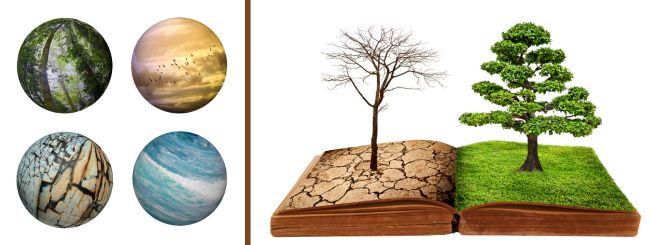Numbers 13:1–15:41 from 11 June till 17 June 2023
וּרְאִיתֶ֥ם אֶת־הָאָ֖רֶץ מַה־הִ֑וא וְאֶת־הָעָם֙ הַיֹּשֵׁ֣ב עָלֶ֔יהָ הֶחָזָ֥ק הוּא֙ הֲרָפֶ֔ה הַמְעַ֥ט ה֖וּא אִם־רָֽב׃
and see what kind of country it is. Are the people who dwell in it strong or weak, few or many?
וּמָ֣ה הָאָ֗רֶץ אֲשֶׁר־הוּא֙ יֹשֵׁ֣ב בָּ֔הּ הֲטוֹבָ֥ה הִ֖וא אִם־רָעָ֑ה …׃
Is the country in which they dwell good or bad?
Numbers 13:18-19
Why did Moses ask of the land is good or bad?
We are talking here about Israel, the promised land. Why did Moses ask the spies to see if the land is good or bad. Is it not logical that the land is good if G-d gives this land to His people? A land overflowing with milk and honey?
In Deuteronomy 8:7, we read that Moses had emphasised that G-d brought the people to a location that was “good” in the sense that it possessed streams and rivers with pure water.[1] Rashi [2] points out that the spies here were instructed by Moses to investigate whether the water in the land was good, whether it had clear springs. In reply to these questions the spies upon returning, answered Moses that the land devoured its inhabitants. (verse 32)[3]. They saw that many people were dying in the country.
However, this was not because of the water (or the air, or the land), but G-d had brought a plague on the land, so the Canaanites were busy with their deaths and they did not pay attention to the spies.[4]
The land and water was good. After all, the land provided great produce. The spies took a giant bunch of grapes, so big that it had to be carried by two people.(verse 23)
We will leave the question of why Moses did asked the question about the land unanswered until later.
How did the country devour its people?
In verse 32, the spies also report on the people: they are great people. You can see that very literally, people like Goliath, but what if we see them as people who were rich and powerful.[5]
The land produced beautiful fruits, which made them sell the produce well to neighboring countries. This made them rich and powerful. It made them want to work even harder to procure even more, to earn even more. The wealth and power also made them feel great, they became haughty.
These people died not only literally, as described above, but also figuratively. Their pride, their belief in their own strength and wealth had led them to idolatry instead of worshipping the One True G-d.
That made it so that although they looked strong and looked like they would be hard to defeat, they would be weak, because G-d would strengthen His people and make them weak.[6]
But that was right 1 of the dangers the spies saw from the country. Would the people become weak in their worship to G-d if they had to start cultivating the land. They would weaken their faith in G-d if they thought the work of their own hands brought them wealth. The land was good, the water was good, but would the people continue to appreciate it, would they be able to handle it well.
Questions that also play a role in our lives today. If we have a good life do we acknowledge that this blessing comes from G-d. Do we bless Him for that which we receive. Or do we think we owe it to our own hard work.
And what about our consumer society that just wants us to consume more and more and more, which means we also have to produce more and more at the expense of everything and everyone. How does our consumption behavior “eat” the inhabitants of the world. Unsafe factories, unsafe mines, child labor….
The world is good, its resources are good. But are we using them well? This is the question Moses asked the spies and a question that we, in our country, in our world, must answer. We have to use the world and its resources to humbly make the world a habitable world. A world in which people experience and recognize G-d as the source of everything. A world in which He can dwell.
Let us use the springs of the earth and water only to the Glory of G-d.
By Angelique Sijbolts
Sources:
Sefaria
[1] Sforno on Numbers 13:19:1
[2] Rashi on Numbers 13:19:2
[3] Chizkuni, Numbers 13:19:1
[4] Rashi on Numbers 13:32:1
[5] I was reminded of Genesis 6:2 where the men in the story can be seen as literally giants or important rich men of their generation.
[6] Likutei Sichot, vol. 4, p 1314
© Copyright, all rights reserved. If you enjoyed this article, we encourage you to distribute it further.
